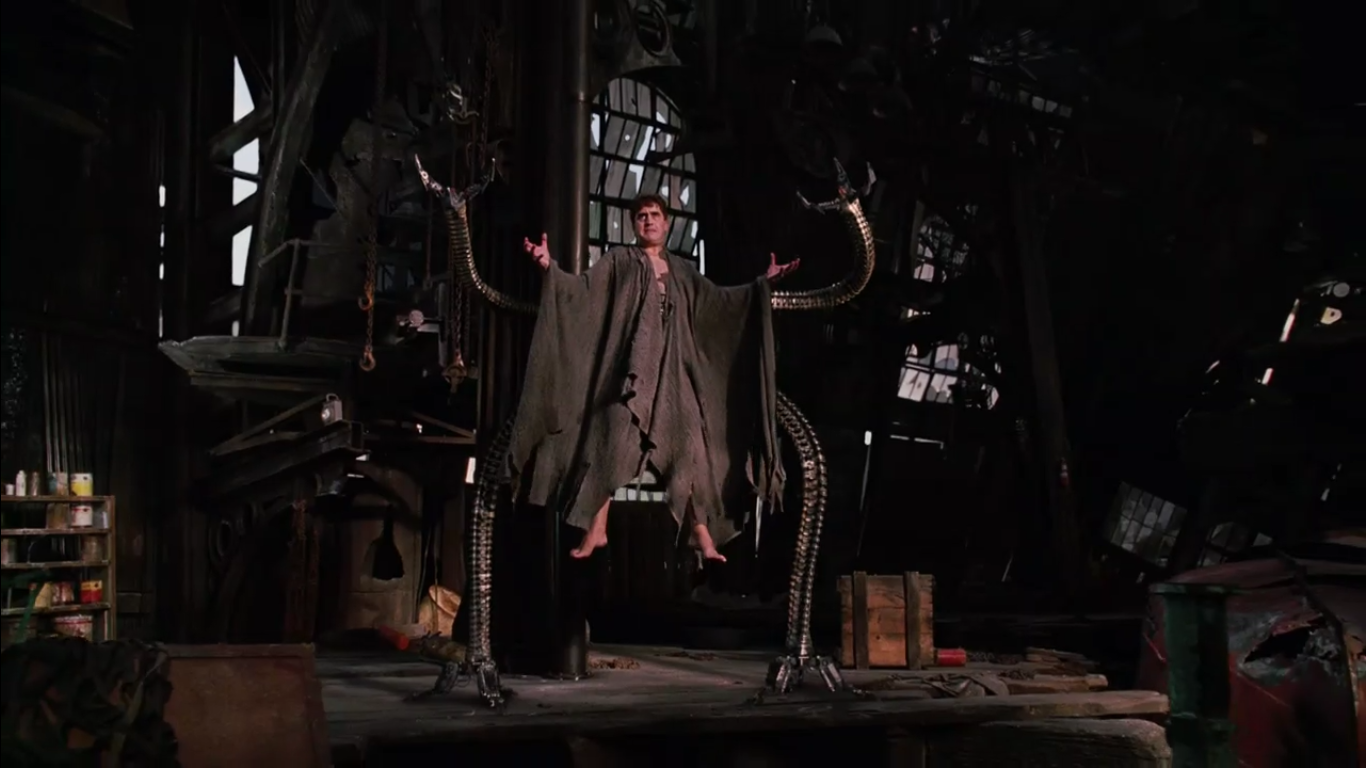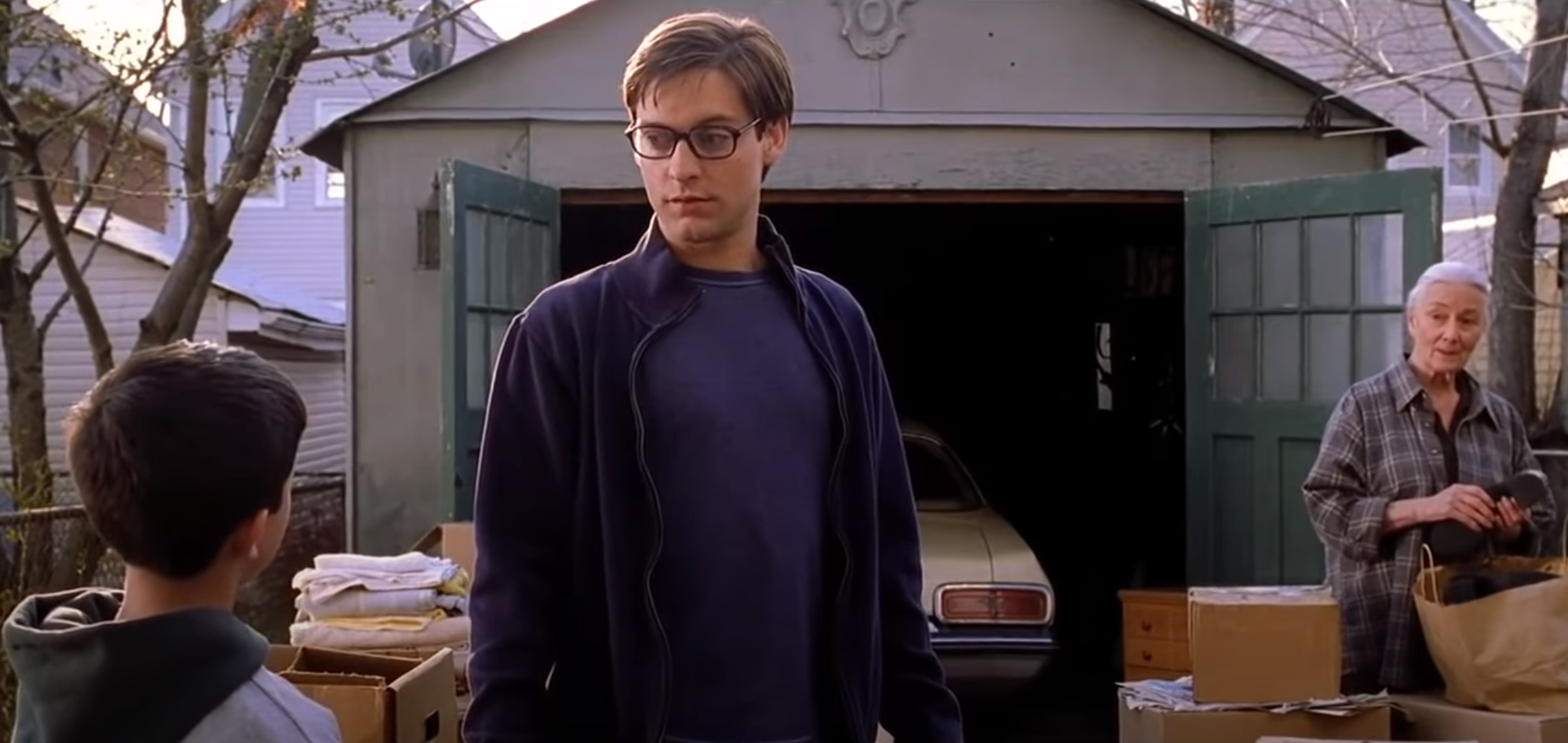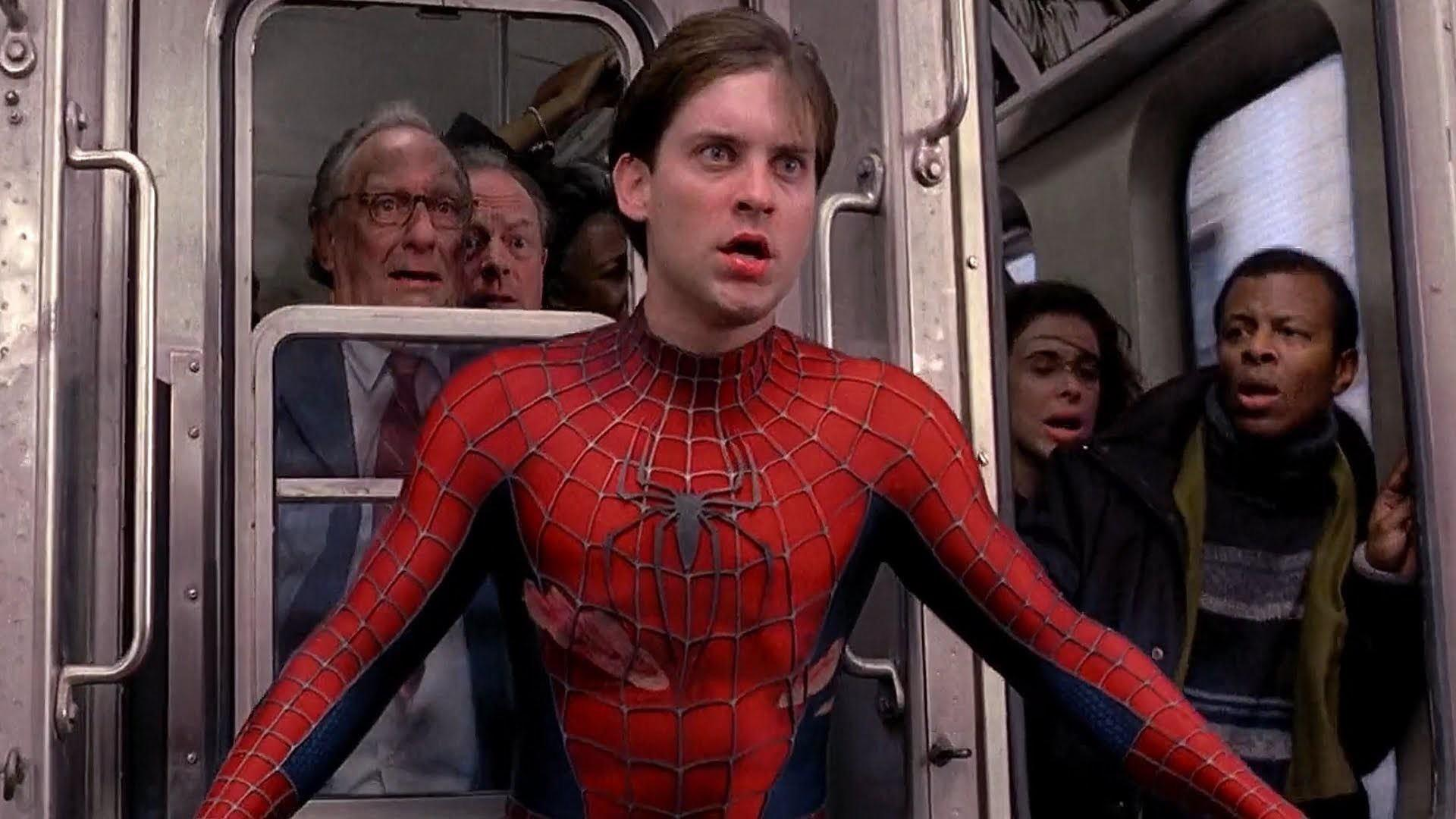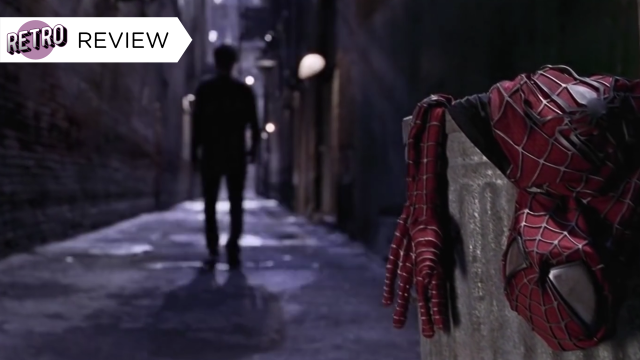So many the cost of forgetting what really made their predecessor work in the first place. Sam Raimi’s sophomore Spider-Man movie aimed much higher and bigger than his first movie ever could, in part because of just how keenly it understood Marvel’s mightiest hero.
In many ways, at its simplest, Spider-Man 2 is its predecessor rendered again, albeit at a grander scale. Its beats and thematic throughlines build on issues reflected there ” the way our protagonists and antagonists alike are forced to play into the systems of power throughout society, the strive for balance between personal desires and senses of duty to a wider whole, even the very idea of how passion can push people to their darkest places (something that, for better or worse, we’ll explore further in Spider-Man 2‘s own successor). Spider-Man and Spider-Man 2 are a couplet, and by bringing in a larger scope ” and perhaps a larger budget given the critical and commercial success of its predecessor ” as it returns to these themes, what Spider-Man has to say as a franchise is amplified.
Instead of Norman Osborn’s personal vendetta against the Oscorp executive board, the conflict this time is that Otto Octavius’ (Alfred Molina) fission experiments have the potential to level New York. The scale of the action, from Spider-Man and Ock’s bank tussle to the iconic train sequence, is magnitudes larger. The emotional drama of the movie, from Harry’s (James Franco) furious hatred of Spider-Man (Tobey Maguire) to the push-and-pull of romantic tension between Peter and Mary Jane (Kirsten Dunst) ” even as the latter finds herself falling in love with J. Jonah Jameson’s (J.K. Simmons) astronaut son John (Daniel Gillies) ” is intensified too, the messy catalyst for the second act’s riff on the famous “Spider-Man, No More!” Even that is Spider-Man 2 amplifying its predecessor, moving on from simply replicating Spider-Man’s comics origins in Amazing Fantasy and instead diving thwip-first into one of his most iconic storylines.

The heightened atmosphere includes the movie’s thematic undercurrent, as well. The toxic systems of power that were on display in the first film are still here: Harry, no longer struggling to break away from the privilege of his family name, but embracing it entirely to fuel his revenge against Spider-Man;Â Octavius’ hubris, which makes him doubt any potential flaws in his experiments; and, once again, Peter himself and the way he leverages his feelings for Mary Jane over the course of the film. But they are now joined by, and in some ways superseded, by those systems of power being societal issues rather than intrapersonal ones. Harry’s toxicity fuels into Oscorp’s financial leverage over Octavius’ plans. Peter’s struggles are no longer high school bullies but predatory landlords and a ruthless job market (and that’s even before we get to the college classes and being, y’know, a superhero), the latter of which also drives Mary Jane’s arc in the film.
It is not just our protagonists and the villain who are caught up in these issues either, but the communities around them, as well. The opening act of the film is particularly fascinated with this: one of the most emotional scenes of the entire movie isn’t a ginormous superhero battle or the romantic climax of our hero getting the girl of his dreams. It’s Aunt May. After both we the audience and Peter have learned that, without Ben, she can no longer afford the mortgage payments on her house, she tearily forces a $US20 ($29) bill into Peter’s hands, begging him to take it as a birthday gift, even as it devastates the both of them. Everything in Spider-Man 2 is bigger, not just because of budget and scope, but because Spider-Man and Peter Parker’s worlds have become larger. He’s not just a high school kid anymore, but a young adult thrust into society with the rest of us, and now has to deal with all the struggles that entails.

That financial anxiety serves as an excellent thread tying the film’s opening parts together ” Aunt May’s foreclosure is what brings Peter into his first encounter with Doc Ock, the latter of whom is robbing a bank. The situations are contrasted by May being screwed over by that same bank’s predatory lending policies. Peter’s desperation for stability in his life outside of superheroics so he can better support the people around him ” in ways financially privileged people like Harry are not ” is in part the catalyst of the stress that leads to his spider-powers going on the fritz, and ultimately in his decision to put away his suit and be Spider-Man no more.
[referenced url=”https://gizmodo.com.au/2020/07/our-25-favourite-summer-blockbusters-of-the-2000s/” thumb=”https://gizmodo.com.au/wp-content/uploads/2020/07/07/ceejqnfbqe8aqiqtkzbo-300×169.jpg” title=”Our 25 Favourite Summer Blockbusters of the 2000s” excerpt=”For the first time in most of our lifetimes, your local movie theatre won’t have a blockbuster season. The covid-19 pandemic took care of that, pushing most of the big-budget popcorn films scheduled for this year’s winter months into spring, autumn, or even next winter. Since we can’t enjoy summer…”]
Using this framework to adapt the iconic Amazing Spider-Man #50 cover only further emboldens what Spider-Man 2 and its predecessor had to say about the nature of power, and the oh-so-quotable great responsibility required to temper it. The use of power, for good or ill, is no longer strictly of a personal impact in Spider-Man 2 the way it was in the first, but rather a commentary on our responsibilities to society at large. Harry may be using Oscorp funding to potentially provide sustainable perpetual energy to New York through Octavius, but he’s doing it to leverage his own privilege and control rather than for the good of those around him. That privilege of Harry’s is then reflected in Peter, as he decides that having a life of his own is, at the moment, more important than using his powers to help the city.

And in turn, that the film’s other iconic Aunt May moment takes place over her packing her and his belongings, admitting defeat that she can’t save her home, inextricably links these pressures together. Her knowing speech about how Spider-Man inspires the hero in all of us, as Peter attempts to make up for revealing to her his role in Uncle Ben’s death, reminds him and us alike of collective responsibility to society as whole, not just our immediate social circles. Everything is bigger, yes, but it still hits those key emotional cores while elevating its commentary.
By taking the issues that drove the first movie so deeply and rendering them on this much grander scale, Spider-Man 2 becomes the rare sequel that manages to strike a perfect balance, and not just between power and responsibility. Spider-Man 2 chases the higher highs, packs the bigger, more explosive punches, brings greater spectacle, but crucially, it never forgets its heart or the heart of its predecessor. That itself comes truly to the fore in the film’s dramatic and emotional climax ” not the actual final battle between Octavius and Peter which, in a rare failing of this film, feels more like a perfunctory mandated ending, a convenient tying up of the bow on Ock’s story after Peter’s arc has reached a satisfying conclusion. Instead, of course, that climax is in the iconic subway train sequence that leads to that conflict.

If there is a moment that could distill everything Spider-Man 2 is, it’s this scene. You have the grand action, as Pete and Ock swing and clamber around one barrelling carriage after another, and debris and hapless citizens go flying. You have that classic Spider-Man moment of superheroic persistence in the face of impossible odds, crucifying himself at the front of the out-of-control train as he barely manages to slow it to a halt. And then you have the most important moment of all: his mask removed in the fray, Peter wakes from his exhaustion to find himself exposed to the public, a sacrifice he had to make to save all of their lives, and ” having spent the second act of the movie selfishly doubting he would ever want or have to make that sacrifice if he simply gave up being Spider-Man ” did so not because he was forced to, but because he wanted to.
It is the perfect amplification of scale in Spider-Man 2, bringing Peter’s responsibility onto a macro scale. In publicly recommitting himself to NYC at large as he does in that moment, the people he saved collectively, earnestly choose to hand him back his mask and keep his identity secret. Peter then has the courage to step up to Ock when he comes to claim his weakened opponent. Just as he wields unimaginable strength to save dozens of lives, those people, in turn, are inspired to find a power of their own ” the hero in all of them, as Aunt May had previously pondered.
And that really is what makes Spider-Man 2 not just work, but be the perfect foil to the origin story told in its predecessor. The desire to be bigger, do more, especially in the realm of superhero cinema, is at the expense of having something meaningful to build on what came before. Spider-Man 2 goes bigger, but it never forgets what it made its progenitor work.
